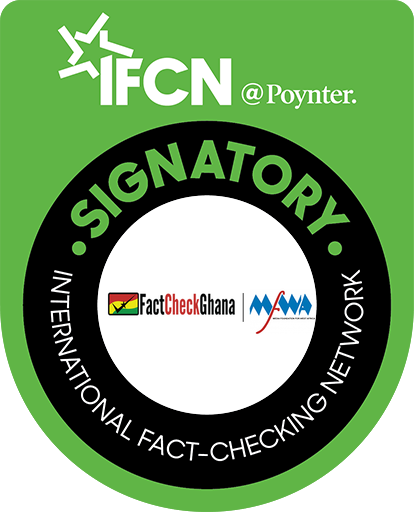On July 25, 2023, several media reports ( here, here and here) suggested Ghana’s parliament had voted to abolish the death penalty from the country’s laws.
This was after parliament passed a Private Member’s Bill (PMB) by Member of Parliament (MP) for Madina, Francis-Xavier Sosu, and amended the Criminal Offences Act, (Act 29).
The Bill is titled: ARMED FORCES (AMENDMENT) BILL, 2022.
According to a memorandum signed by Francis-Xavier Sosu, the Bill’s purpose was “to amend Armed Forces Act, 1962 (Act 105) to substitute the penalty of life imprisonment for the death penalty and to provide for related matters.”
Specifically, paragraph seven of Francis-Xavier’s memorandum on the Bill states that:
“The passage of the Armed Forces (Amendment) Bill, 2022 would be a major step towards the removal of the death penalty from the Statue Books.”

Thus, after the Bill was passed many media houses understood it to mean that death penalty has entirely been removed from Ghana’s laws and therefore published news reports suggesting same.
However, checks by Fact-Check Ghana show that death penalty has not been entirely expunged from Ghana’s statute books.
Article 3 clause (3) of Ghana’s 1992 Constitution, considered the supreme law of the country, states that anyone who is convicted of high treason is liable to suffer death.
“3. (3) Any person who:
(a) by himself or in concert with others by any violent or other unlawful means, suspends or overthrows or abrogates this Constitution or any part of it, or attempts to do any such act; or
(b) aids and abets in any manner any person referred to in paragraph (a) of this clause; commits the offence of high treason and shall, upon conviction, be sentenced to suffer death.”
Article 289 of the 1992 Constitution describes some portions of the Constitution as “Entrenched Provisions.” Fact-Check Ghana’s verification shows that Article 3, which is mentioned above, is an entrenched provision.
For these provisions to be amended, they must pass through specific procedures outlined in the Constitution. Clauses two to six of Article 290 stipulate how the entrenched provisions shall be amended:
“(2) A bill for the amendment of an entrenched provision shall, before Parliament proceeds to consider it, be referred by the Speaker to the Council of State for its advice and the Council of State shall render advice on the bill within thirty days after receiving it.
(3) The bill shall be published in the Gazette but shall not be introduced into Parliament until the expiry of six months after the publication in the Gazette under this clause.
(4) After the bill has been read the first time in Parliament it shall not be proceeded with further unless it has been submitted to a referendum held throughout Ghana and at least forty per cent of persons entitled to vote, voted at the referendum and at least seventy-five per cent of the persons who voted cast their votes in favour of the passing of the bill.
(5) Where the bill is approved at the referendum Parliament shall pass it.
(6) Where a bill for the amendment of an entrenched provision has been passed by Parliament in accordance with this article, the President shall assent to it.”
In the passage of The ARMED FORCES (AMENDMENT) BILL, 2022, none of the aforementioned conditions were met. Therefore, even though the Bill has been passed, Article 3 Clause 3 of the Constitution is still valid and active.
Human rights activist Lawyer Martin Kpebu, who has been an integral campaigner for the death penalty to be abolished, reiterated that capital punishment is still in Ghana’s laws when he spoke with Fact-Check Ghana.
He said their efforts have yielded considerable gains as Ghana is 95 percent close to removing the punishment completely from the country’s laws.
“When we say 95 percent, it’s because high treason from the Constitution is not part. It is a constitutional provision so we couldn’t amend it. So, simply, yes, it’s not a one hundred percent abolition,” Mr Kpebu said.

He added that although Ghana needs to amend the Constitution to reach this goal, there were more pressing issues that require amendments.
“We are celebrating but we are also saying we need a constitutional amendment. The reason is that we can’t go and do a referendum because of the death penalty alone. To be honest with you right now, the governance issue, the way we’ve given the president too much power, is the biggest worry, not the death penalty,” he added.
Commending Ghana’s parliament on the vote to abolish the death penalty in the criminal code, Amnesty International’s West and Central Africa Director, Samira Daoud, said for the abolition of the death penalty to be complete, the Constitution must be revised.
“Although a landmark decision, the total abolition of this draconian punishment would not be complete without revising the Constitution, which still provides for high treason to be punishable by death,” she said.
From the above, it’s clear that even though Ghana’s parliament has passed the ARMED FORCES (AMENDMENT) BILL, 2022 to abolish the death penalty in the Criminal Offences Act, (Act 29), there is a provision for capital punishment in the 1992 Constitution. Therefore, claims that death penalty has entirely been removed from Ghana’s laws are inaccurate.
You may also read:
False! Niger coup leaders have NOT ordered finance minister to account for missing monies



